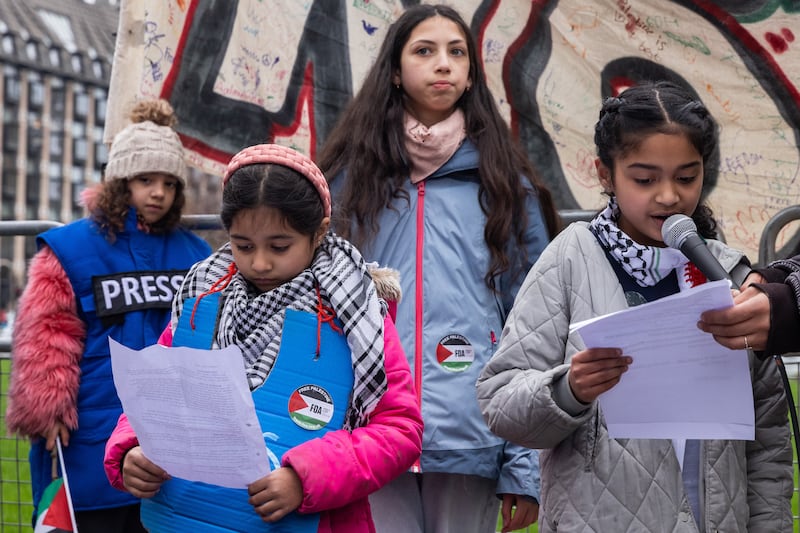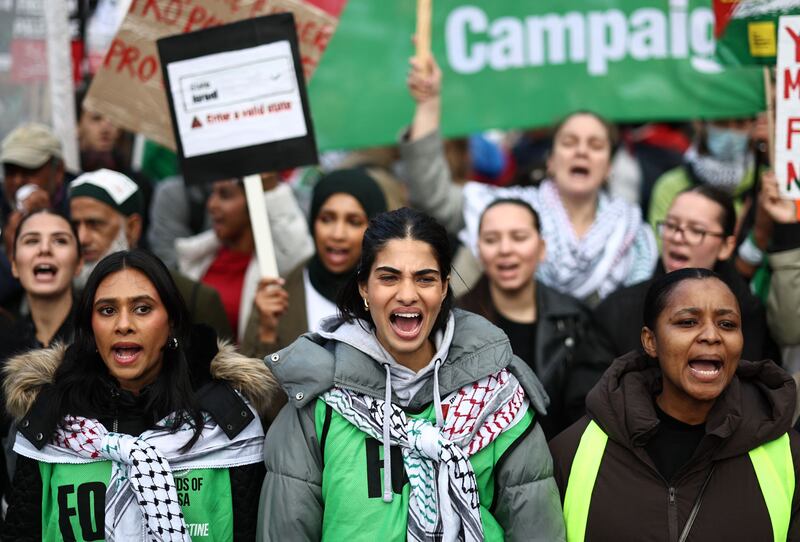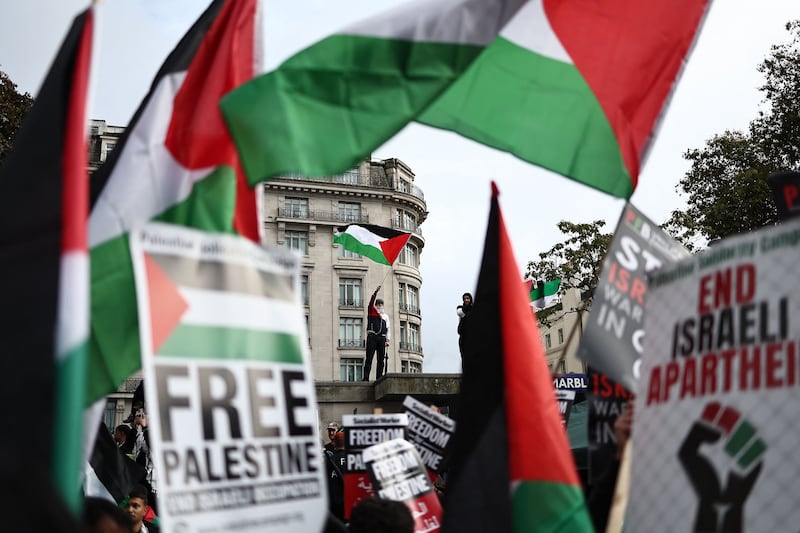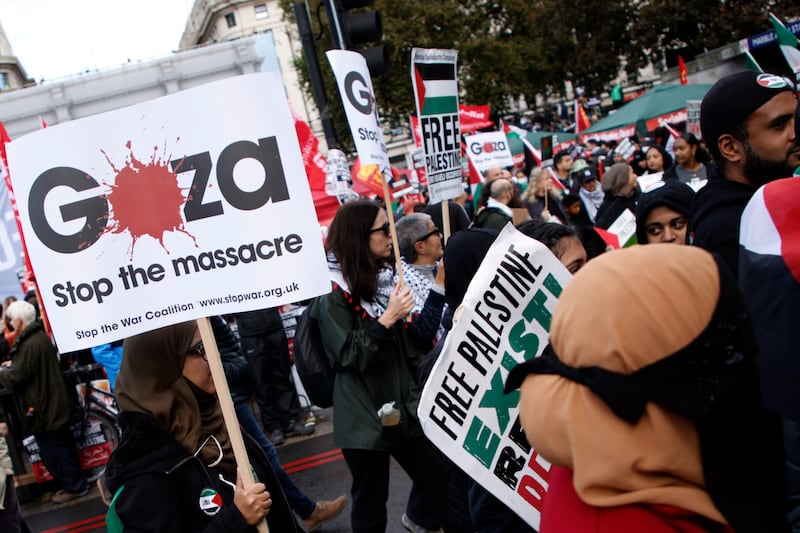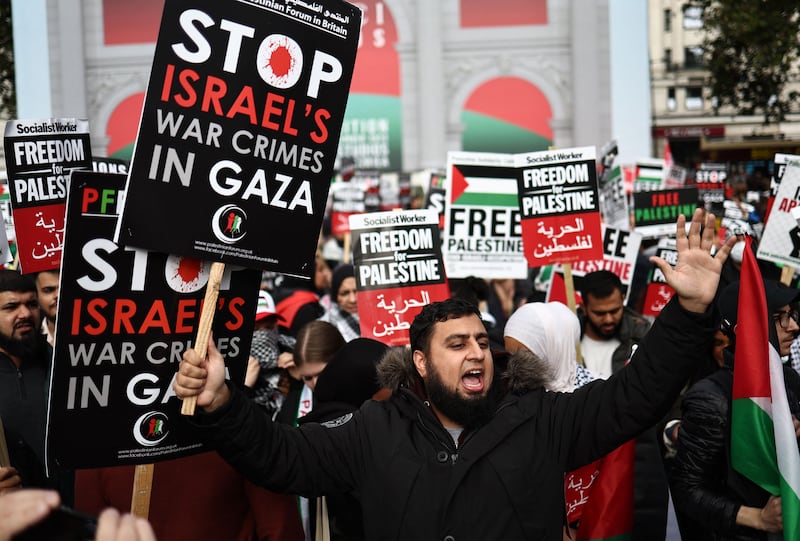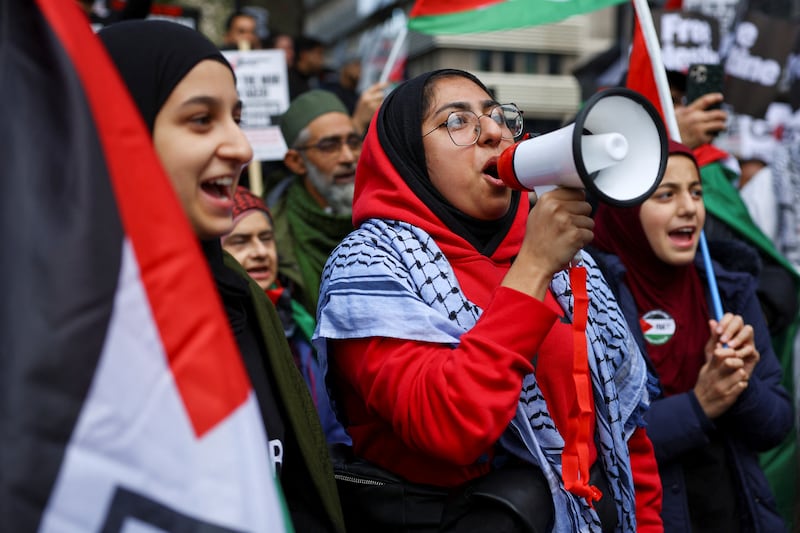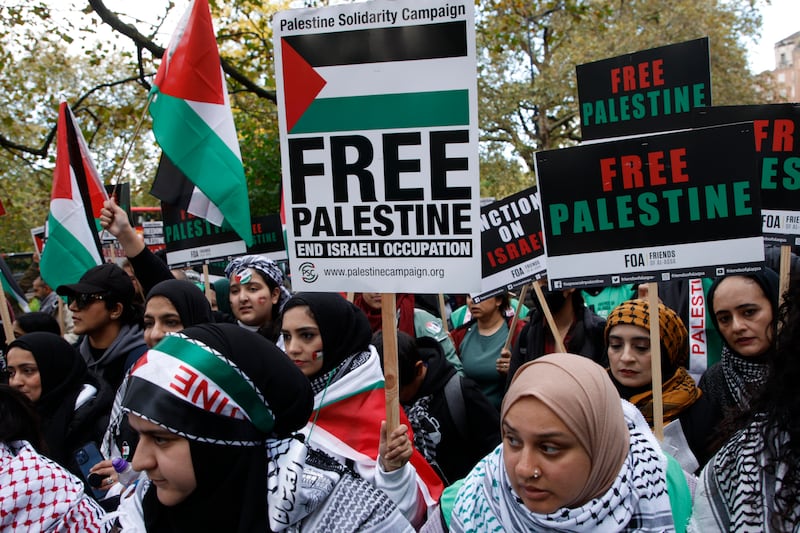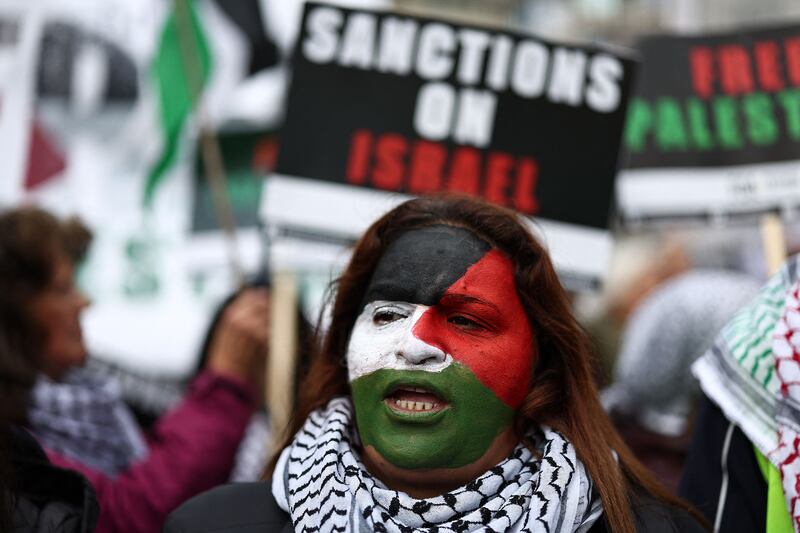Live updates: Follow the latest news on Israel-Gaza
Teachers are set to debate whether Britain’s largest education union should circulate material to “increase understanding of Palestine and Israel”, after it was revealed the history of the conflict is taught in fewer than one in 50 UK schools.
Delegates at the National Education Union annual conference in Bournemouth next week are due to vote on whether the union should support the Palestine Solidarity Campaign.
The motion proposes that the executive should “publish and circulate educational resources that members can use to increase understanding of Palestine and Israel”.
It accuses Israel's government of being “racist” and suggests it is the “main driver” of the conflict, violence and war.
The motion says: “The UK government must stop being an enabler of Israel's apartheid policies, violence and anti-Palestinian racism.”
It suggests it is trying to “criminalise peaceful tactics of boycott, divestment and sanctions promoted by the global Palestine solidarity movement”.
The motion calls on the union's executive to reaffirm its support for PSC and Stop the War Coalition and back campaigning “to defend the right to pursue boycott, divestment and sanctions tactics”.
The National reported earlier this month that just 44 schools – representing less than 2 per cent of all state secondaries in the UK – taught a GCSE history module in 2023 about the history of the conflict, stretching from the British withdrawal and creation of Israel in 1948 to the Oslo Accords of 1995.
Only 1,812 GCSE students registered at exams for the module across the 44 schools, UK exam board Edexcel told The National.
The figure represents 0.5 per cent of GCSE history entries for that year, according to figures from the Nuffield Foundation.
OCR, another exam board, dropped its GCSE module covering the subject in 2019. It offers it for A-level, to an even smaller pool of history students.
Pro-Palestinian protests in London – in pictures
The continuing war in Gaza was sparked by Hamas's deadly raid into Israel on October 7, which killed about 1,200 people and saw militants seize about 250 hostages.
Israel's retaliatory strikes have left more than 32,000 Palestinians dead.
UK educational charity Parallel Histories, which supplies teachers with resources on the conflict that tell the story from the Israeli and Palestinian perspectives, said demand for its material has tripled since the October 7 attacks and ensuing Israeli response.
Daniel Kebede, general secretary of the NEU, said teachers are “very nervous about having such discussion around such difficult subjects in school at the moment”.
“It's a very sensitive issue. Very difficult. In our union, we've been very clear that we absolutely condemn the attack from Hamas and the taking of hostages,” he said.
But he added that there was a “real humanitarian disaster” and young people wanted to talk about it.
Mr Kebede said: “Schools are the best place for young people to talk about difficult subjects, but I think there is a nervousness among the profession.”
Department for Education (DfE) guidance says teachers should avoid expressing their own political views to pupils unless they are confident it will not amount to promoting that view to pupils.
When asked about the teaching union taking a political stance on the conflict, Mr Kebede said: “Our union has a long history of standing in solidarity with the Palestinian people. It's a union position.
“Teachers dealing with this issue – discussing this issue – will do so in a way that's supportive and allows young people to form their own opinions around a world that is incredibly complex.”
Mr Kebede, who is due to speak at a Palestine solidarity demonstration on Saturday, said: “I think the majority of the public clearly want a ceasefire. They want to see humanitarian aid flow into Gaza.
“It's not a position that is, I think, far from where the majority of people are.”
